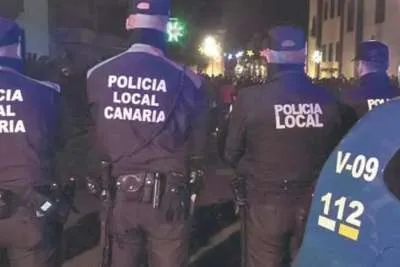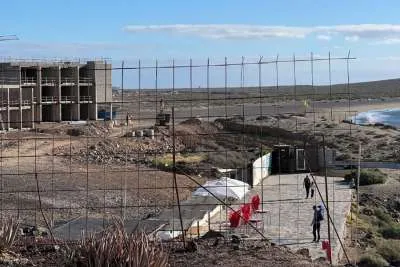Sustainable tourism in the Canary Islands: Lessons from Milledgeville, Georgia
- 06-08-2024
- Business
- Canarian Weekly
- Photo Credit: Pexels
Tourism is vital for the Canary Islands, attracting millions of visitors each year who enjoy its stunning landscapes, unique wildlife, and vibrant culture. However, the influx of tourists also challenges the infrastructure of the islands, in particular, waste management. Sustainable tourism practices are becoming increasingly important as the islands strive to maintain their natural beauty and ecological balance.
Interestingly, Milledgeville waste solutions, a small city in the United States, offers valuable lessons in effective waste management that can be applied to the Canary Islands. This article explores how the Canaries can adopt sustainable tourism practices by learning from the waste management strategies employed in Milledgeville.
The Importance of Sustainable Tourism in the Canary Islands
Sustainable tourism is a process that seeks to have a minimal impact on the environment while at the same time having the maximum effect on the people in the community. Here in the Canary Islands, these goals translate into measures to prevent wastage of resources, protect existing natural resources, and conserve the unique environment for which the Canary Islands is famous.
Due to the small size of the islands and the number of tourists visiting them, proper handling of waste poses one of the biggest challenges for the islands in terms of maintaining their beauty and viability in the future.
Milledgeville's Approach to Waste Management
Therefore, while Milledgeville, Georgia, may not be a tourist attraction like the Canary Islands, its efficient waste management systems should be emulated. The city has a strong strategy for waste management options and ensuring the community participates in recycling and efficient waste disposal.
The Milledgeville waste solutions are characterised by the participation of the community as a primary factor. Thus, the city has ensured that passing information to its residents concerning the need to recycle and dispose of garbage appropriately has enhanced the culture of environmentalism.
The recycling programs in Milledgeville are geared towards providing easy solutions that require active participation by the residents. The city offers kerbside collection of recyclable products and materials, so households can easily segregate their waste into recyclable and non-recyclable waste.
Also, Milledgeville has made provisions for disposing of hazardous waste so that it does not land in the dump; they have provided drop-off centres where items like batteries, electronics, and chemicals, among others, can be dropped off. This has ensured high recycling rates and minimal landfill waste, making it one of the strategies that has been effective in implementing sustainable waste management.
Applying Milledgeville's Lessons to the Canary Islands
From the experience of Milledgeville, the Canary Islands can take the following measures to improve their waste management and advancement of sustainable tourism. First, there is a need to engage the community. The islands can enforce responsible behaviour by raising locals' and tourists' awareness of the effects of waste and the importance of recycling. A way to share this and similar information is through educational campaigns, workshops, and information boards, which can help inform people about the positive impact of environmental waste management.
Secondly, it is critical to make recycling easy, such as by providing convenient bins for people to dispose of their waste correctly. The Canary Islands could look at adopting more kerbside recycling services, and ensure that more recycling containers are placed in public locations, accommodations, and attractions.
Further, they also stand to gain from opening collection depots for specific wastes or hazardous materials. Discarded electronic items, batteries, and chemicals, when not disposed of properly, are dangerous to the environment. These centres must be situated in prominent places and adequately advertised to encourage people within the communities and visitors alike to use them frequently.
Innovative Waste Reduction Initiatives
However, Milledgeville’s initiative can be implemented in the Canary Islands, and new measures for preventing waste can be developed based on the peculiarities of the Canary Islands context. For instance, using non-recyclable items like water bottles, shopping bags, and food containers can reduce the application of single-use plastics. The incentives can range from free meals for the guests to rebates or other customer rewards in cases where cars are returned with reusable items still intact.
Another innovative solution is the use of waste-to-energy systems, which convert waste generated into energy. The situation can improve in the Canary Islands if organic waste is converted to energy in processes such as anaerobic digestion. The most significant advantage of this can be observed in the case of the islands, which are often forced to import energy.
Conclusion
Ecological and sustainable tourism is crucial in maintaining the Canary Islands' natural beauty and biological and geological equilibrium. By using the example from Milledgeville, Georgia, the archipelago can improve its waste management practices and work towards implementing eco-friendly measures in the tourism industry.
By organising effective community outreach, implementing affordable recycling services, and developing environmentally friendly waste management solutions, the islands can alleviate the adverse effects of tourism and pave the way toward a better tomorrow for future inhabitants. The experiences of Milledgeville can teach the Canary Islands that waste management is not a simple process that can be solved by separating recyclable items from the rest but a complex process that requires a systematic and community-oriented approach.



























































